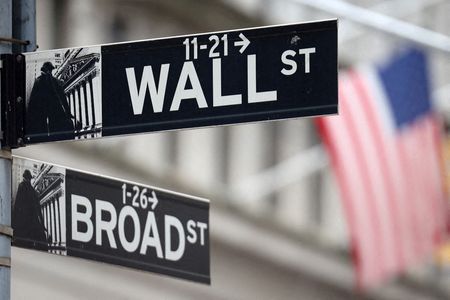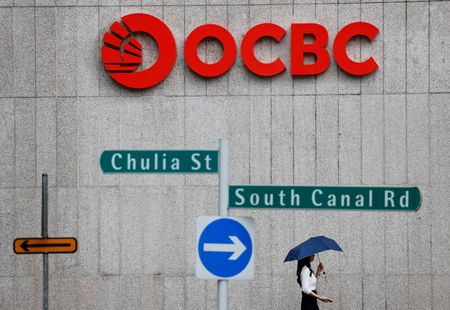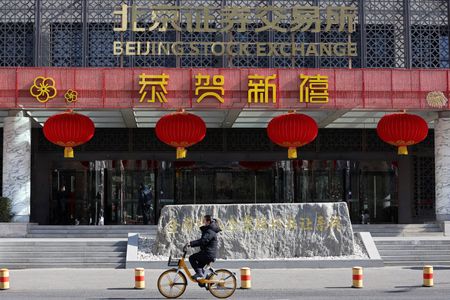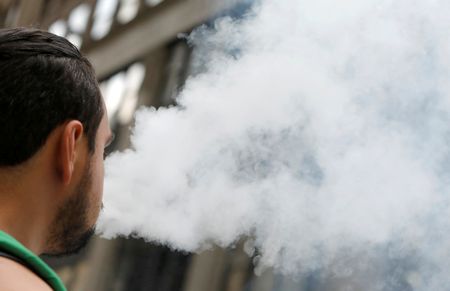By Alden Bentley and Amanda Cooper
NEW YORK/LONDON (Reuters) -Two major Wall Street indexes saw their fourth straight decline on Tuesday, as Treasury yields and the dollar retreated on signs of softening U.S. growth and uncertainty over Trump administration policies.
Germany’s election result buoyed the euro, and European shares closed up.
Oil prices fell to a two-month low as weak economic news from the U.S. and Germany fed fears of slowing demand.
Nervousness about Nvidia’s fourth-quarter results after the market close on Wednesday hung over the market. Friday’s Personal Consumption Expenditures price index release, which the Federal Reserve tracks for its mandate to control inflation, was also in focus.
The S&P 500 lost 28.00 points, or 0.47%, to 5,955.25 and the Nasdaq Composite lost 260.54 points, or 1.35%, to 19,026.39.
A weak read on U.S. consumer confidence added to the negative mood.
The Dow Jones Industrial Average .DJI rose 159.95 points, or 0.37%, to 43,621.16.
The 10-year yield fell 9.5 basis points to 4.298% while the 2-year note yield, which typically moves in step with interest rate expectations for the Fed, fell 7.2 basis points to 4.096%.
European shares closed up 0.2% on Tuesday, after gains in banks and healthcare companies offset declines in technology stocks.
The soft U.S. economic data pressured the dollar index, which measures the greenback against a basket of currencies.
The euro is one of the worst-performing major currencies against the dollar, given its high exposure to the risk of tariffs.
U.S. President Donald Trump’s planned duties on U.S. imports risk pushing up domestic inflation, while his mass firings of government employees could impact the labor market, just when the Federal Reserve needs room to cut interest rates.
Tension between the U.S. and Europe has also risen over Ukraine and how to broker a ceasefire agreement with Russia, three years after Moscow’s full-blown invasion of its neighbour.
Sentiment in the markets is fragile but there has been little in the way of volatility, according to Chris Beauchamp, chief strategist at IG.
“This is a sharp contrast to the past couple of years where crises seem to come one at a time and then, you could just deal with them when they occurred, and now it seems to be ‘everything, everywhere, all at once’,” he said.
REASONS FOR OPTIMISM?
CBOE’s VIX volatility index rose to its highest in a month on Tuesday, but so far has fallen short of the peak from late January.
Beauchamp said there are reasons to be optimistic.
“If you look at earnings season, it’s gone really well. But of course, the headlines and the signs of fracture between Europe and the U.S. – it doesn’t directly affect … stocks, but it just makes sentiment all the more febrile.”
Meanwhile, negative surprises in U.S. economic data have accelerated this month, led by unwelcome pickups in things like consumer inflation expectations and, most recently, by a drop in overall business activity.
Treasury Secretary Scott Bessent argued on Tuesday that the U.S. economy is more fragile under the surface than economic metrics suggest, citing interest rate volatility, sticky inflation and job growth focused on the government sector.
Since China’s low-cost AI model from DeepSeek burst onto the scene in late January, investors have begun to question whether the hefty spending on this technology is justified and a lot will be riding on Nvidia’s fourth-quarter earnings.
Chinese retail investors have poured into AI-linked stocks on the domestic market this month, sending the Hong Kong equity index to three-year highs.
In commodities, brent futures fell $1.76, or 2.4%, to settle at $73.02 a barrel, while U.S. West Texas Intermediate crude fell $1.77, or 2.5%, to settle at $68.93.
Spot gold fell 0.01% to $2,914.69 an ounce. U.S. gold futures settled 1.5% lower at $2,918.80. Gold hit its highest level at $2,956.15 on Monday. [GOL/]
Bitcoin gained 0.2%, reversing losses after falling below $87,000.
(Additional reporting by Chris Prentice in New York, Stella Qiu in Sydney; Editing by Nick Zieminski and Stephen Coates)









